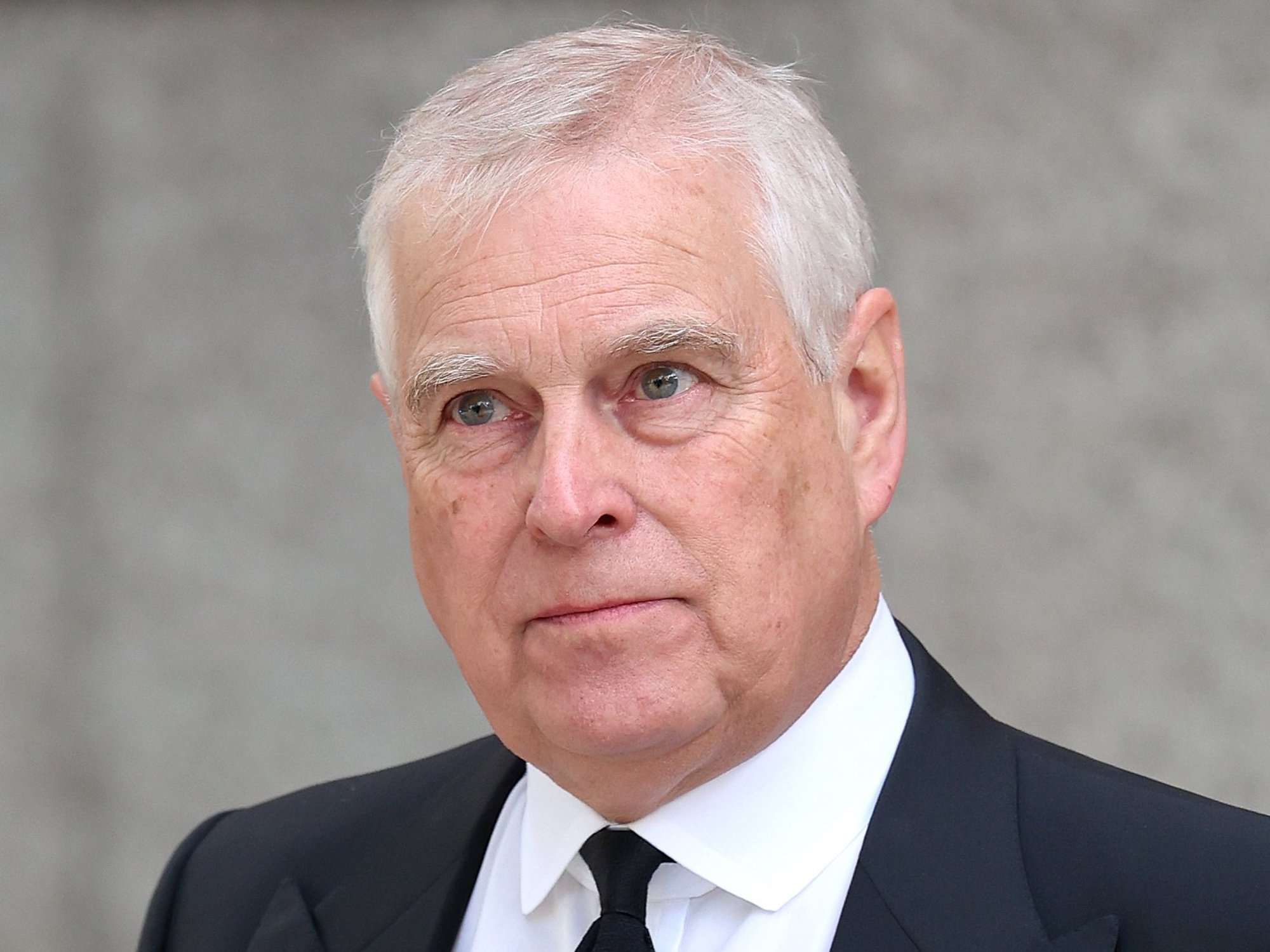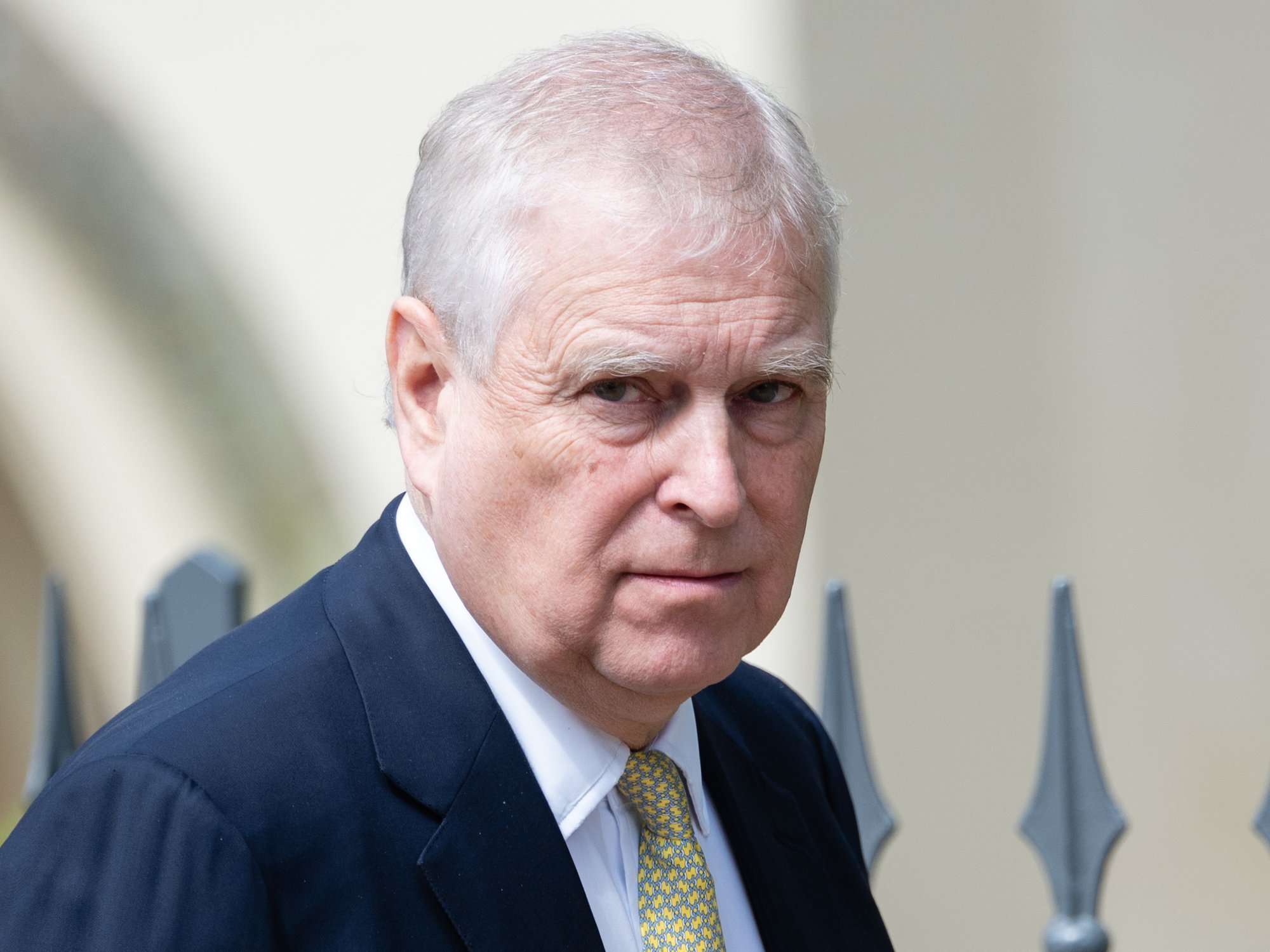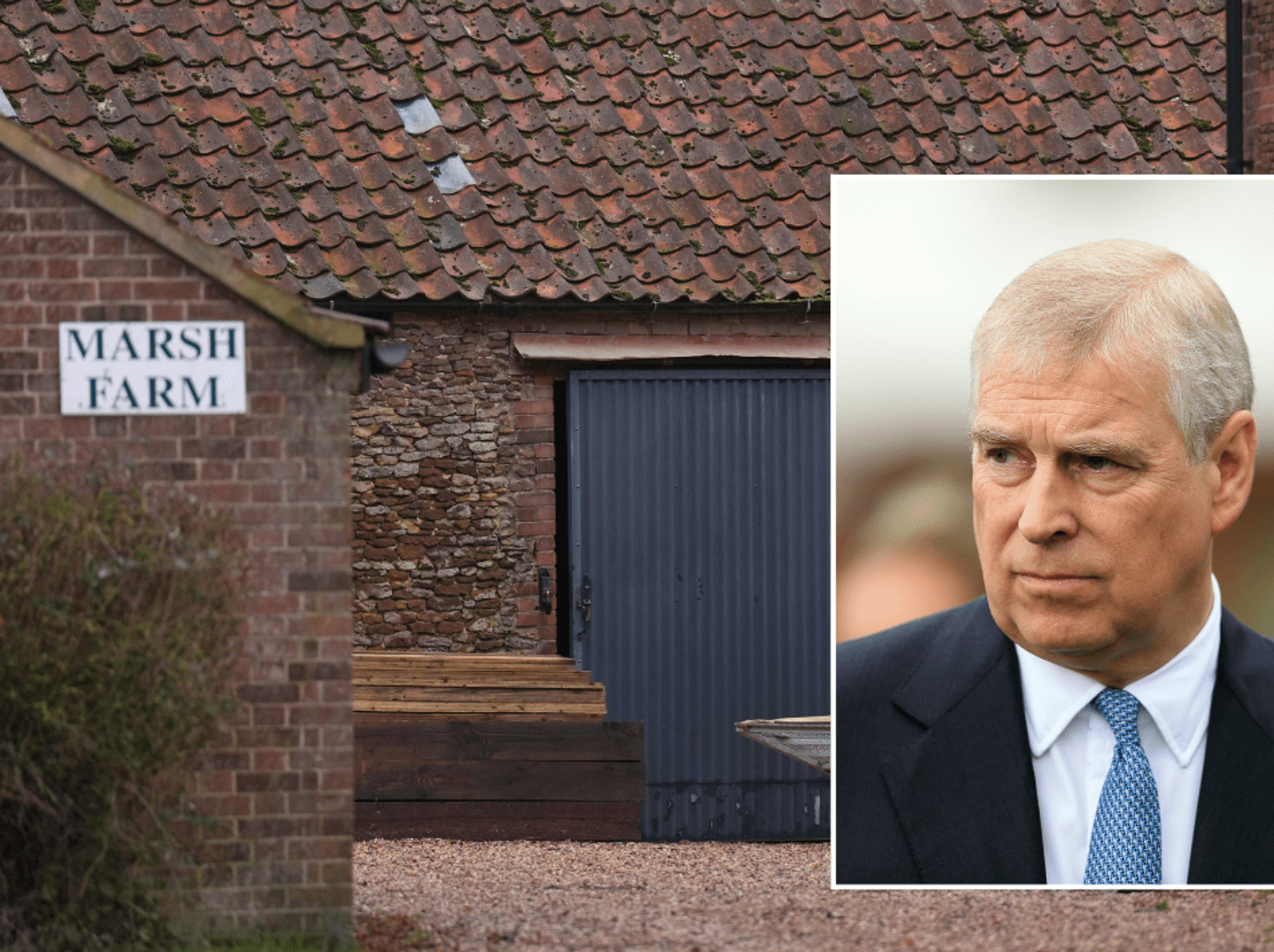England set to ditch Wembley in break from tradition as fresh details emerge

The move is a significant shift in the FA's approach to hosting international fixtures
Don't Miss
Most Read
The England football team are set to ditch Wembley in a group stage game at Euro 2028 in a break from sporting tradition.
Details on the new stadium have emerged, with Manchester City's Etihad Stadium reportedly set to host the international fixture.
The Three Lions will then play at one of three other British stadiums if they progress to the knockout rounds.
In the running to host the round of 16 are the grounds of Tottenham Hotspur, Everton, Aston Villa, Manchester City, and Newcastle United.
TRENDING
Stories
Videos
Your Say
They were all previously in the running for the group match before Manchester City reportedly won the bid.
Next week, the Etihad Stadium, currently in the midst of a £300m expansion that will take its capacity to 61,747, will be announced as England’s "second home" for the group stage, according to the Mail.
City’s expansion, expected to be completed during the current season, will add 7,900 seats to the capacity.
The move is a significant shift in the FA's approach to hosting international fixtures, opting for a more decentralised approach.
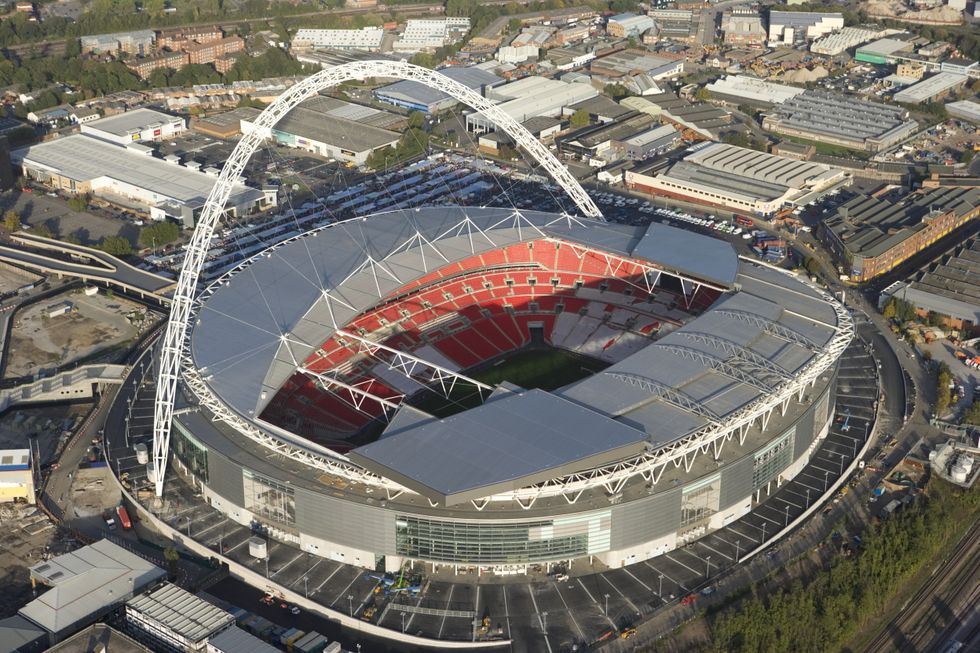
The England football team are set to ditch Wembley in a group stage game at Euro 2028 in a break from sporting tradition
|GETTY
The 2028 Euros will take place in all four UK nations, with the Aviva Stadium in Ireland also being used.
Cardiff, Glasgow and Belfast will be the UK host cities outside of England.
A full schedule will be announced next week.
While the four hosts will play qualifying matches, two slots in the 24-nation finals will be reserved for host countries whose teams fail to qualify.
LATEST SPORTS NEWS
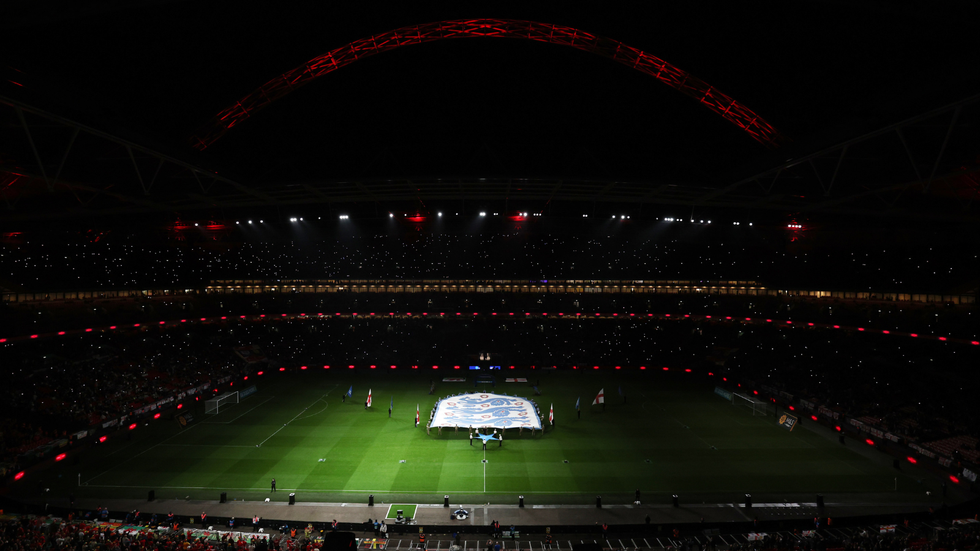
A full schedule will be announced next week
|GETTY
The Three Lions will then play at one of three other British stadiums if they progress to the knockout rounds.
In the running to host the round of 16 are the grounds of Tottenham Hotspur, Everton, Aston Villa, Manchester City, and Newcastle United.
If more than two teams fail to secure places on merit, UEFA will select the two that performed best in qualifying.
Any others would miss out.
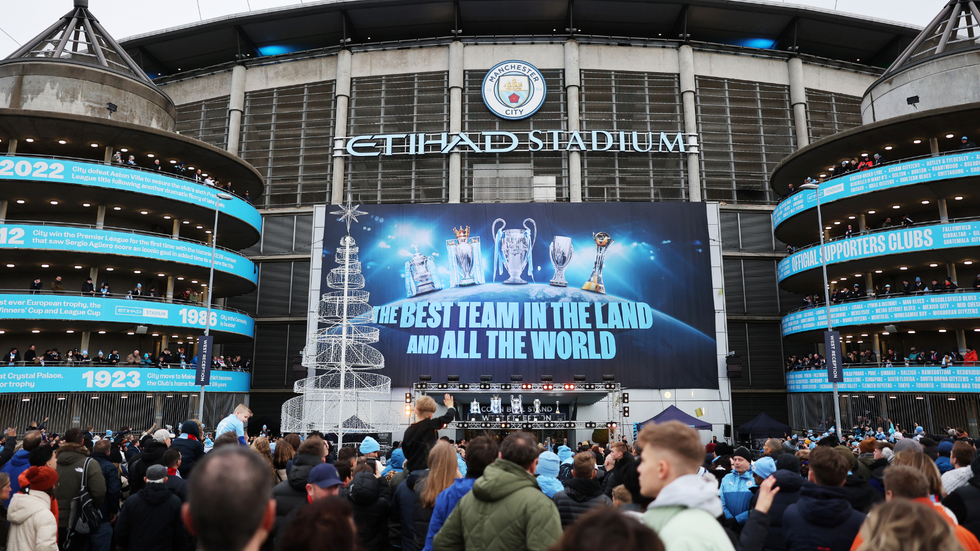
The Etihad's stadium expansion is expected to be completed during the current season
|GETTY
The History of Wembley
Wembley Stadium, often called the "Home of Football,” has stood as one of the world’s most iconic sporting venues for nearly a century.
The original stadium, officially named the Empire Stadium, opened its doors on 28 April 1923, built for the British Empire Exhibition and designed by architects Sir John Simpson and Maxwell Ayrton.
Its inaugural event, the 1923 FA Cup Final, became legendary as the “White Horse Final,” when mounted police struggled to control an overwhelming crowd of 200,000 spectators.
Over the decades, Wembley hosted some of the most historic moments in sports, including the 1948 Olympic Games and the 1934 Commonwealth Games.
Football fans remember 1966 vividly, when England lifted their only FIFA World Cup trophy after defeating West Germany 4–2 in a thrilling final.
Beyond football, Wembley became a global entertainment hub, hosting legendary concerts by Queen, Michael Jackson, and the famed Live Aid concert in 1985.
The stadium also served as the regular venue for the FA Cup Final and numerous European club competitions, cementing its place in football history.
In 2000, the original stadium closed, and demolition began in 2002 to make way for a modern replacement.
The new Wembley Stadium, opened in 2007, features a striking arch and seating for 90,000 fans, continuing the venue’s legacy.
Today, Wembley remains a symbol of sporting excellence and cultural significance, attracting millions of fans from around the world.









